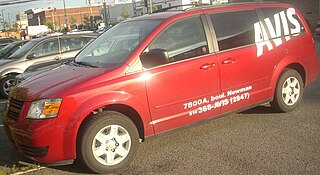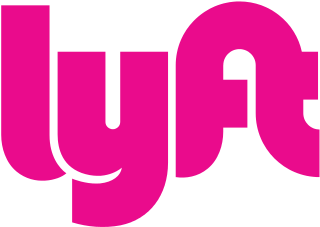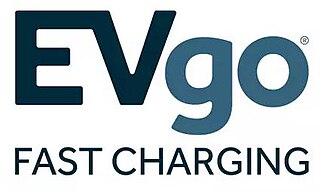
General Motors Company (GM) is an American multinational automotive manufacturing company headquartered in Detroit, Michigan, United States. The company is most known for owning and manufacturing its four core automobile brands of Chevrolet, GMC, Cadillac and Buick. By sales, it was the largest automaker in the United States in 2022, and was the largest in the world for 77 years before losing the top spot to Toyota in 2008.

Hertz Global Holdings, known as Hertz, is an American car rental company based in Estero, Florida. The company operates its namesake Hertz brand, along with the brands Dollar Rent A Car, Firefly Car Rental and Thrifty Car Rental.

SAIC General Motors Corporation Limited is a joint venture between General Motors Company and SAIC Motor that manufactures and sells Chevrolet, Buick, and Cadillac brand automobiles in Mainland China.

The Chevrolet Suburban is a series of automobiles built by the Chevrolet division of General Motors. In production since the 1935 model year, the model line is currently in its twelfth generation; it is the longest-used automobile nameplate in the world. Beginning life as one of the first metal-bodied station wagons, the Suburban is the progenitor of modern full-size SUVs, combining a station wagon body with the chassis and powertrain of a pickup truck. Alongside its Advance Design, Task Force and C/K predecessors, the Silverado pickup trucks share chassis and mechanical commonality with the Suburban.

Avis Car Rental, LLC is an American car rental company headquartered in Parsippany, New Jersey. Along with Budget Rent a Car, Budget Truck Rental and Zipcar, Avis is a unit of Avis Budget Group.

Lyft, Inc. is an American company offering mobility as a service, ride-hailing, vehicles for hire, motorized scooters, a bicycle-sharing system, rental cars, and food delivery in the United States and select cities in Canada. Lyft sets fares, which vary using a dynamic pricing model based on local supply and demand at the time of the booking and are quoted to the customer in advance, and receives a commission from each booking. Lyft is the second-largest ridesharing company in the United States after Uber.

The Cadillac ELR was a two-door, four-passenger luxury plug-in hybrid compact coupé manufactured and marketed by Cadillac for model years (MY) 2014 and 2016 – with a hiatus for MY 2015. Using a retuned version of the Chevrolet Volt's Voltec EREV drivetrain, the ELR's lithium-ion battery pack delivered an all-electric range of 37–39 miles (60–63 km) and a top speed of 106 mph (171 km/h).

Shared transport or shared mobility is a transportation system where travelers share a vehicle either simultaneously as a group or over time as personal rental, and in the process share the cost of the journey, thus creating a hybrid between private vehicle use and mass or public transport. It is a transportation strategy that allows users to access transportation services on an as-needed basis. Shared mobility is an umbrella term that encompasses a variety of transportation modes including carsharing, Bicycle-sharing systems, ridesharing companies, carpools, and microtransit.

Turo is an American peer-to-peer carsharing company based in San Francisco, United States. The company allows private car owners to rent out their vehicles via an online and mobile interface in 4 countries.
Sidecar was a US-based vehicle for hire company that provided transportation and delivery services. It was founded in 2011 in San Francisco and closed on December 31, 2015.
The sharing economy is a socio-economic system whereby consumers share in the creation, production, distribution, trade and consumption of goods, and services. These systems take a variety of forms, often leveraging information technology and the Internet, particularly digital platforms, to facilitate the distribution, sharing and reuse of excess capacity in goods and services.

A ridesharing company is a company that, via websites and mobile apps, matches passengers with drivers of vehicles for hire that, unlike taxis, cannot legally be hailed from the street.
The legality of ridesharing companies by jurisdiction varies; in some areas they are considered to be illegal taxi operations, while in other areas, they are subject to regulations that can include requirements for driver background checks, fares, caps on the number of drivers in an area, insurance, licensing, and minimum wage.

EVgo is an electric vehicle DC fast charging station network in the United States, with more than 850 charging locations as of August 2022. The company's charge stations are located in 34 states and are compatible with all major auto manufacturers.
A robotaxi, also known as robo-taxi, self-driving taxi or driverless taxi, is an autonomous car operated for a ridesharing company.
Vehicle subscription is a service where a customer pays a recurring fee for the right to use one or more automotive vehicles. Some vehicle subscriptions offer insurance and maintenance as part of the subscription fee; other subscriptions allow the subscriber to switch between different vehicles during their subscription period. Industry commentators consider vehicle subscription to be an alternative to owning or leasing a vehicle.
A series of general strikes was coordinated on March 25, 2019 by Lyft and Uber drivers in Los Angeles, San Diego and San Francisco, California, United States led by rideshare advocate group Rideshare Drivers United. The strikes aimed to protest low wages, long hours, working conditions, and lack of benefits. The event was planned following Lyft's initial public offering. A second strike took place on May 8, 2019 in anticipation of Uber's initial public offering. The strike in response to Uber's IPO took place in 25 major cities across the United States, and were also joined by drivers in other locations worldwide where Uber operates.

Android Automotive is a variation of Google's Android operating system, tailored for its use in vehicle dashboards. Introduced in March 2017, the platform was developed by Google and Intel, together with car manufacturers such as Volvo and Audi. The project aims to provide an operating system codebase for vehicle manufacturers to develop their own version of the operating system. Besides infotainment tasks, such as messaging, navigation and music playback, the operating system aims to handle vehicle-specific functions such as controlling the air conditioning.

Revel is a dockless electric moped sharing startup based in New York City. Founded in 2018 by Frank Reig and Paul Suhey, it first started with a small pilot program in New York, later growing its fleet size in New York and expanding into Washington, D.C., Miami, and San Francisco. Having pulled out of Washington and Miami in 2022, Revel announced in November 2023 that it would end operation of its mopeds and focus on its electric-vehicle taxi service and its vehicle charging stations.

The GM BEV2 platform is an automotive platform made by General Motors designed specifically for small electric vehicles. Multiple divisions of the LG Corporation have been instrumental in construction in addition to GM's contributions to the platform.















